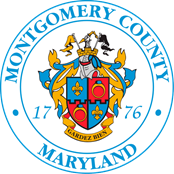Montgomery County, Maryland Información en español

Press Releases - County Council
Councilmember Riemer Announces Plans to Restore Legendary Black Baseball Field in Emory Grove
For Immediate Release: Friday, June 10, 2022
The lighted field at Johnson Park was once the heart of Black baseball in Montgomery County. Renovation plans that will showcase its history will be unveiled at the 1st Annual Juneteenth Classic Baseball Game on June 12th, 2022
ROCKVILLE, Md., June 10, 2022—Montgomery County Councilmember Hans Riemer will join community leaders and the Department of Parks on Sunday, June 12 to announce renovation plans for Johnson’s Local Park, once Montgomery County’s thriving home field for Black Baseball sandlot teams and a center of community gathering in Emory Grove.
The announcement will be made on Sunday, June 12 at 1:45 p.m. prior to the 1st Annual Clarence ‘Pint’ Isreal Juneteenth Classic between the Bethesda Big Train and Gaithersburg Giants of the Cal Ripken Collegiate Baseball League, at Shirley Povich Field. Pint Isreal was a Negro League baseball player from Montgomery County who played at the sport’s highest levels. Isreal was recently selected by the Montgomery County Sports Hall of Fame as a member of their 2022 Class of Inductees.
Along with churches and schools, baseball became the center of civic life in the mid-20th century when many Black communities organized sandlot teams. The premier field for the County’s Black sandlot teams was Johnson’s Park in Emory Grove which had lights, allowing for games to continue to be played into the night. Residents would gather there throughout the summer for food, fellowship, religious services, and baseball. Barnstorming Negro League teams came to Emory Grove to take on the County’s top sandlot teams, including some of the game’s most famous players.
In February 2022, the nonprofit organization Montgomery History organized a panel about the history of Black baseball in Montgomery County. Local legend Billy Gordon, who grew up playing baseball and attending games, shared with participants how, “We all went to church on Sunday and after church, it was time to go outside, and if there was a ballgame you’d head to the ballgame. I got to spend a great deal of time at Johnson’s Park and watched all the teams come from miles around bringing all their fans food, and it was an amazing sight to see a thousand people for a doubleheader.”
During the recent deliberations on the County’s new capital budget, Councilmember Riemer led the effort with Council colleagues and the Parks Department to allocate funding to renovate the baseball field at Johnson’s Local Park to recognize and honor the legacy of sandlot baseball in Montgomery County.
“I am thrilled by the chance to make Johnson’s Park a premier baseball field once again,” said Councilmember Hans Riemer. “As a baseball dad and coach, I hope to see this field become a renowned place for competitive youth baseball, where players will not only play on the same ground as some of the County’s greats, but see murals and storyboards showcasing that unique history and come away with a deeper understanding of the community they live in and the game they love.”
“Bethesda Big Train baseball is so proud to help celebrate the grand tradition of Montgomery’s Black sandlots with the June 12 First Annual Clarence ‘Pint’ Isreal Juneteenth Classic at Shirley Povich Field,” said Big Train founder Bruce Adams. “We are looking forward to being able to play this game at historic Johnson’s Park in future years."
Johnson’s Local Park is an 11-acre park located in the Washington Grove area that was known as “Emory Grove Park” until 1996 when the name “Johnson’s Local Park” was reinstated to reflect its history. Built in 1947 by Black business entrepreneur Edward Johnson, Johnson’s Park hosted barnstorming Negro Leagues teams that took on Montgomery County’s top sandlot teams including the Rockville American Legion Post 151, Maryland Wildcats, and the Sandy Spring All-Stars.
Former Scotland Eagles third baseman Eddie Dove once said: “When you played at night at Johnson’s Park, you felt like a pro.” As opportunities for Black residents expanded in the 1960’s and early 70’s, the Black sandlot baseball teams disappeared. But the field at Johnson’s Park today looks remarkably similar to how it was then, including a large grassy bank down the first base side where hundreds of spectators could watch the game.
Acquired by M-NCPPC in 1974, Johnson’s Local Park will be one of the first parks included in their “Untold Stories Initiative,” a project highlighting historically significant stories of Montgomery County’s diverse communities. Parks will construct a “Walk Through History,” with an ADA-accessible paved trail and interpretive signage telling the story of this park’s remarkable history. Additionally, Montgomery Parks is implementing several improvements at this park through their Park Refresher program, including the conversion of the existing softball field to a baseball field with a new outfield fence and scoreboard, a conversion of tennis courts to soccer courts, basketball court rehabilitation, new pickleball courts, lighting upgrades, picnic shelters, walkways, and parking lot improvements.
“As an important site in local African-American history, it’s appropriate that Johnson’s Local Park will be one of the first parks we are highlighting as part of our Untold Stories Initiative,” said Mike Riley, director of Montgomery Parks. “Our parks are rich in history, and through interpretation and commemoration, we can bring many of these stories to life. I look forward to attending the first demonstration game on a renovated baseball diamond at Johnson’s Local Park.”
“Johnson’s Park was an important anchor in the Black community, a gathering place for people from around the county,” said Montgomery History Director Matt Logan. “Its significance extended far beyond the baseball games that were played. We are thrilled to see the park reestablished and brought back to life as a place rich in local history where people can connect with one another again."
# # #
Release ID: 22-234Media Contact: Jason Fasteau 240-777-7964
Categories: Hans Riemer